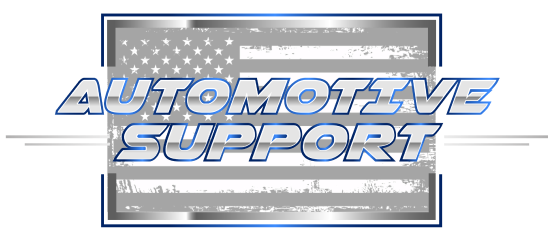Steve Inskeep talks to Bloomberg Businessweek reporter Zeke Faux about merchant cash advances, which are not considered loans. They skirt regulations and strip borrowers of their rights.
Anybody who’s taken out a loan knows you have to sign a stack of papers. Maybe you read them. Maybe you don’t. If it’s a home loan, some of them may be consumer guarantees that protect you from predatory lenders. But some of the documents guarantee the rights of the lender. And some small business borrowers, who have fewer protections, have discovered a document they signed that cost them everything. It’s called a confession of judgment. In that document, the borrower agrees that if the lender accuses them of failing to pay, they will not contest it in court. Bloomberg Businessweek reports that some lenders take advantage of that document to seize the assets of small business owners who took out high-interest loans and were paying. Co-author Zeke Faux spoke with two small business people who fell prey.
Small Businesses Fall Victim To Merchant Cash Advances
ZEKE FAUX: Doug and Janelle Duncan were running a struggling real estate brokerage in the Tampa suburbs. And one day, Janelle got a call from someone who identified themselves as a debt counselor. And this stranger warned her that a lending company had obtained a judgment against her and that, soon, her bank accounts would be frozen. She thought it sounded like a scam. And she ignored the warning. But it turned out that everything that he had said was true. A lending company had accused them of not paying and seized their accounts. And this started a chain reaction which eventually led to the demise of their real estate company. The worst part about it was the Duncans say that they were current on their loan.
INSKEEP: So they didn’t even have to be behind. Someone just said they were behind and took their money. And the someone, you allege, is some firm called ABC, which had loaned them the money. And it’s part of a larger operation, which is what?
FAUX: The lender ABC is one of many names used by a bigger company called Yellowstone Capital. And these are one of these cash-advance companies. And as far as we can tell, they e up with this confession of judgment concept. Yellowstone has obtained more than 5,000 judgments in this way. It’s a big sales force that are calling small businesses all across the country, offering them fast money. And when the businesses fall behind, they start to use these tactics to collect on the loans.
FAUX: The interest rates on these loans, when annualized, can be higher than 400 percent. And the businesses are required to make payments daily. So it’s very easy to fall behind. But these guys are – their offers are attractive because they can fund businesses overnight. And they will lend money to people who are already heavily indebted, who have very bad credit ratings, whose businesses are on the verge of failure.
FAUX: Merchant cash-advance companies are located in many states, and the borrowers are all across the country. But these cash-advance companies have realized that New York state laws are particularly friendly to their practices. So wherever the company is located, wherever the barber is located, the transaction occurs in New York.
INSKEEP: But then there are New York officials who are asked to go collect the money from the victims. Why do they do that?
FAUX: So the New York City Marshals are mostly evicting people, towing cars. But they also enforce court judgments. So one marshal appears to have become the go-to guy for this cash-advance industry. And what the marshals association their spokesman says is that these marshals simply enforce court judgments. And these cash-advance companies have already gone to court and had these debts made official. But the marshal who they prefer – he earned a net profit last year of $1.7 million. And if he doesn’t prove to serve these judgments to the cash-advance companies’ liking, they can go find another marshal to do it. So there’s an incentive for him to do whatever the cash-advance companies want.
Small Businesses Fall Victim To Merchant Cash Advances
FAUX: It’s an old-fashioned system that dates way back to the Dutch colonial times. The marshals are public officials, but they’re paid by the creditors. They receive what’s known as poundage. They get 5 percent fee on top of whatever they collect.
INSKEEP: I guess we should note when we talk about a New York City Marshal making $1.7 million, that is a lot more – several times more – than the governor of New York, than the mayor of New York or any other New York official.
INSKEEP: You said that some of the people you talked with acknowledge they should’ve known better. I wonder if that is the reason that people can get away with this kind of financial crime – because it’s the kind of crime where you’re humiliated. And you think you yourself are responsible, and you blame yourself.
FAUX: The borrowers often blame themselves. They also are in no position to fight back because their bank accounts are frozen. They’re broke. And they’re located, most of the time, in a different state, making it expensive for them to get a lawyer who could try and contest a judgment that’s already been entered in New York.
Copyright © 2018 NPR. All rights reserved. Visit our website terms of use and permissions pages at for further information.
NPR transcripts are created on a rush deadline by Verb8tm, Inc., an NPR contractor, and produced payday loans near me Springfield TN using a proprietary transcription process developed with NPR. This text may not be in its final form and may be updated or revised in the future. Accuracy and availability ming is the audio record.

